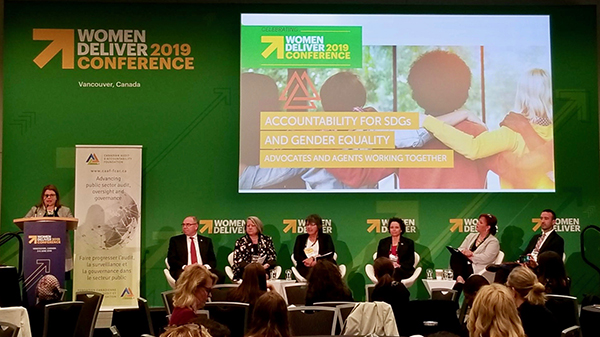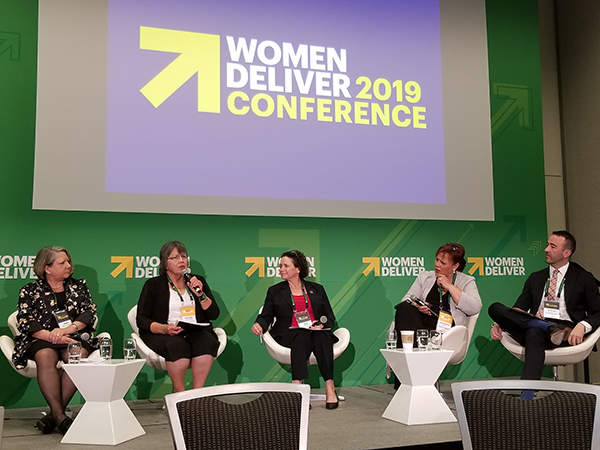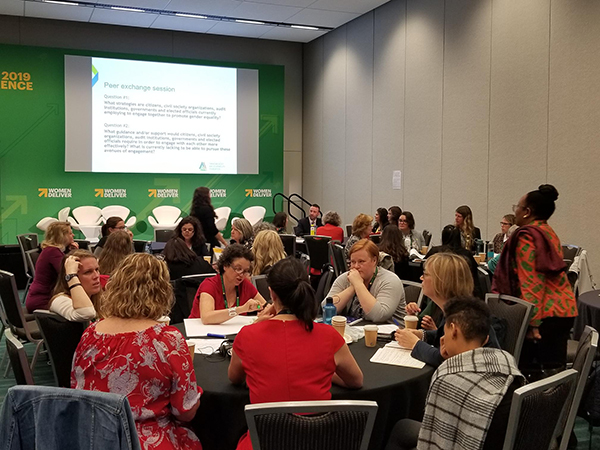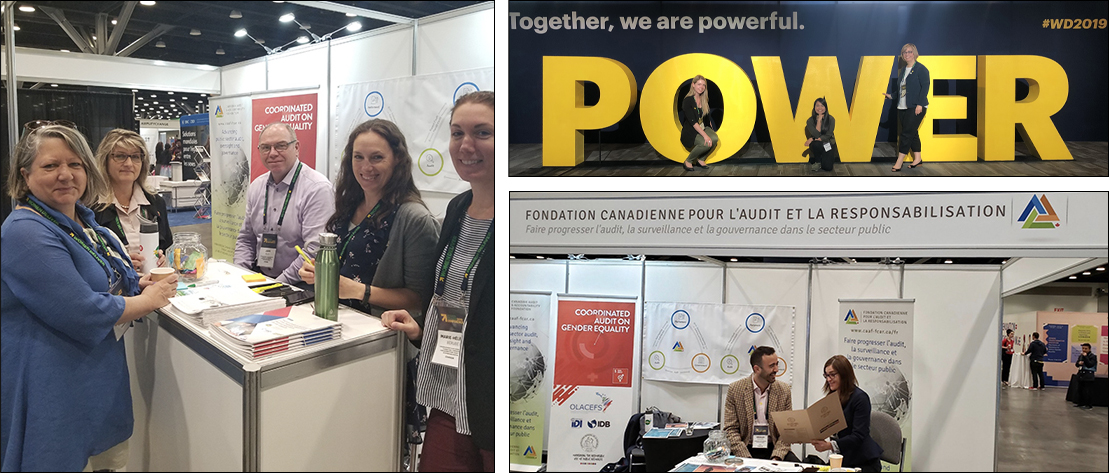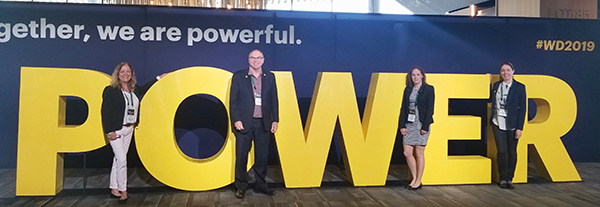July 23, 2019
|
|
Bringing Together Auditors, Elected Officials and Civil Society at the Women Deliver Conference
|
||||||||
 |
More than 8,000 people, from over 165 countries, gathered in Vancouver, Canada, June 3-6, 2019, for the Women Deliver Conference—the world’s largest conference on gender equality and the health, rights and wellbeing of girls and women. The Canadian Audit and Accountability Foundation (CAAF) was thrilled to be there and to host a conference side event titled Accountability for the SDGs and Gender Equality: Advocates and Agents Working Together. Our event brought together advocates—citizens and civil society organizations (CSOs)—and accountability agents—audit institutions and elected officials—for a panel discussion and peer exchange session. We explored how auditors and elected oversight bodies are addressing the United Nations Sustainable Development Goals and gender equality in their work, and how civil society can engage with these agents for stronger accountability. The event marked the launch of our project to create a guide for citizens and CSOs on how to work with audit institutions and elected oversight bodies to hold government accountable for the implementation of the SDGs and specifically SDG 5, “Achieve gender equality and empower all women and girls.” It was a great opportunity to connect with CSOs and hear their thoughts on this project. Our participation at the conference and the development of the new guide are a continuation of CAAF’s focus on how audit, oversight and accountability can contribute to advancing gender equality. In 2017 we published our Practice Guide to Auditing the Sustainable Development Goals: Gender Equality and this spring, we held the pilot delivery of our Auditing Gender Equality course, which we plan to deliver in each of the countries participating in our international program later this year. The conference event and the new guide also continue our relationship with Women Deliver, a leading global advocate that champions gender equality and the health and rights of girls and women. Women Deliver contributed expertise to both the Practice Guide and the course and will again be a partner in the development of the guide for citizens and CSOs. What We Heard At our conference side event, CAAF’s President and CEO, John Reed, moderated the discussion between five panelists:
See the panelists’ biographies From the auditors on the panel, we heard how their offices are considering the SDGs and gender equality in their work. This can be directly, as in the case of the OAG of Canada’s audit on government’s preparedness to implement the SDGs and OLACEFS’s coordinated audit on SDG 5, or by auditing related topics, like climate change, aboriginal education, or rural and remote nursing, like the OAG of British Columbia does. As Ms. Gelfand explained, performance auditing “is really an interesting tool” that “can be used for all kinds of different social change—in this case, the SDGs.” The auditors also spoke about how their offices consult with stakeholders. Ms. Bellringer’s office seeks input to specific audits and, by publishing its three-year performance audit plan, encourages the public to comment on its overall planning. She noted the importance of being inclusive so that the office hears all important views. Mr. Rudloff explained that OLACEFS audit institutions highly value the role of civil society in the accountability process and depend in part on civil society to apply public pressure for government to implement audit recommendations. OLACEFS audit institutions have signed a declaration on the promotion of citizen participation in the monitoring and control of the SDGs and conducted an assessment of their implementation of citizen engagement impact indicators.
Ms. Mendès, a Vice-Chair of Canada’s Standing Committee on Public Accounts, described the role of this committee in reviewing and acting upon audit reports. “As performance audit reports come to us at the Committee,” she said, “fundamentally what we want to ensure is that Canadians are getting the services that government is meant to deliver to them.” This can include examining issues through a sustainable development lens. Ms. Erickson’s remarks illustrated that a wealth of knowledge exists within civil society, notably in indigenous communities, and that it would be helpful for auditors and elected officials to tap into this resource. As she said, “The process of implementing the Sustainable Development Goals must include indigenous people at every step of the process. The indigenous knowledge held in the communities can help guide the recommended changes to achieve a sustainable environment.” After the panel discussion, we turned things over to the audience members for the peer exchange portion of the event. We asked them to consider two questions:
From the ideas discussed during the peer exchange, some key themes emerged:
These ideas were echoed in our other conversations throughout the conference. At our booth in the exhibition hall, CAAF and partners from OLACEFS, the INTOSAI Development Initiative (IDI), and the OAGs of Canada, Alberta and British Columbia spoke with delegates from around the world about the roles of audit institutions and oversight bodies and how they interact in the accountability process. We heard frequently, both in our session and at the booth, that CSOs are interested in learning more about audit institutions and oversight bodies and how they could engage with them.
It was also inspiring for CAAF and our partners to hear from delegates about their work on gender equality and to attend other conference sessions. For instance, the team from the OAG of Alberta—Maureen Debaji, Marielle Diaz and Kirstie Roehler—said, “The conference had a powerful impact on us, especially after having been part of the pilot of CAAF’s Auditing Gender Equality course. We are energized and motivated more than ever to integrate gender equality into our role as accountability agents.” Developing the Guide Our team left Vancouver excited to begin work on our guide for citizens and CSOs and having met many individuals and organizations interested in being part of the project. Inspired by the conference theme of “power,” we are eager to help civil society, audit institutions and oversight bodies combine their powers to seek accountability for the SDGs and gender equality.
Our guide will help citizens and CSOs better understand the role of audit and oversight and give them guidance and tools to engage in the accountability process, all while focusing on contributing to the advancement of gender equality and the achievement of the SDGs. The guide will be developed under the auspices of our International Governance, Accountability and Performance program, which is funded by the Government of Canada. We look forward to sharing the guidance with the countries participating in this program, as well as with citizens, CSOs, auditors and elected officials across Canada and around the world. We are now beginning to write the guide, incorporating what we heard at the conference and working in collaboration with Women Deliver, OLACEFS, IDI and other partners. We also welcome additional ideas—if you would like to be part of this project, please contact our Program Officer for Gender Equality and Ethics, Marie-Hélène Bérubé, at mhberube@caaf-fcar.ca. You can learn more about the initiative in the concept note. Thanks to the partners who joined us at the conference and to all those who shared their ideas at our side event and our booth. We look forward to collaborating and consulting with you on the development of this guide!
|

